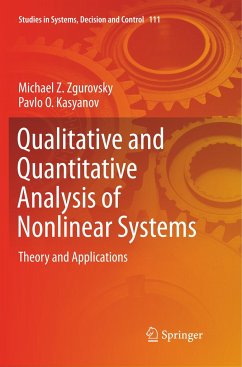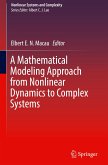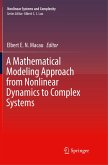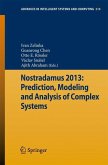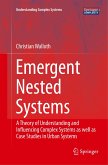Here, the authors present modern methods of analysis for nonlinear systems which may occur in fields such as physics, chemistry, biology, or economics. They concentrate on the following topics, specific for such systems:
(a) constructive existence results and regularity theorems for all weak solutions;
(b) convergence results for solutions and their approximations;
(c) uniform global behavior of solutions in time; and
(d) pointwise behavior of solutions for autonomous problems with possible gaps by the phase variables. The general methodology for the investigation of dissipative dynamical systems with several applications including nonlinear parabolic equations of divergent form, nonlinear stochastic equations of parabolic type, unilateral problems, nonlinear PDEs on Riemannian manifolds with or without boundary, contact problems as well as particular examples is established. As such, the book is addressed to a wide circle of mathematical, mechanical and engineering readers.
(a) constructive existence results and regularity theorems for all weak solutions;
(b) convergence results for solutions and their approximations;
(c) uniform global behavior of solutions in time; and
(d) pointwise behavior of solutions for autonomous problems with possible gaps by the phase variables. The general methodology for the investigation of dissipative dynamical systems with several applications including nonlinear parabolic equations of divergent form, nonlinear stochastic equations of parabolic type, unilateral problems, nonlinear PDEs on Riemannian manifolds with or without boundary, contact problems as well as particular examples is established. As such, the book is addressed to a wide circle of mathematical, mechanical and engineering readers.
"This book presents a collection of known and new results on evolutional nonlinear systems which appear in a variety of applications in physics, mechanics, economy, biology and chemistry. ... The book contains also a nice introduction on basic classes of problems presented with some historical comments. The entire book is clearly written, uses a modern notation and without a doubt it can be recommended to all researchers in this interesting field." (Stanislaw Migórski, zbMATH 1402.93016, 2019)

